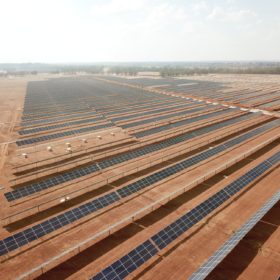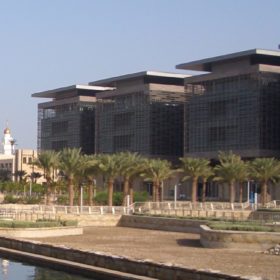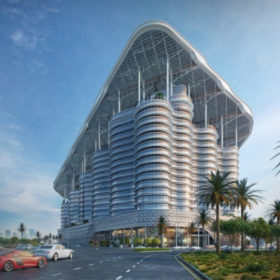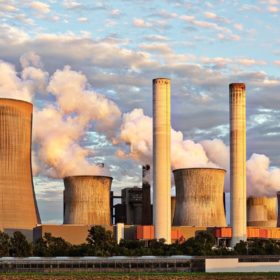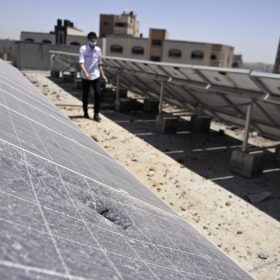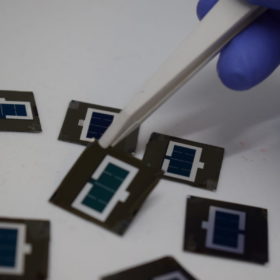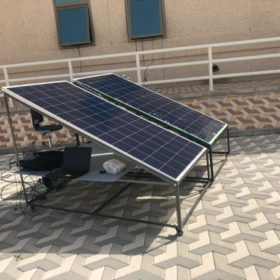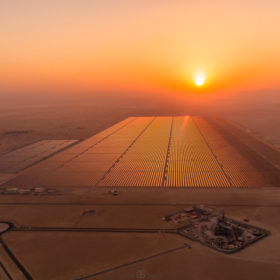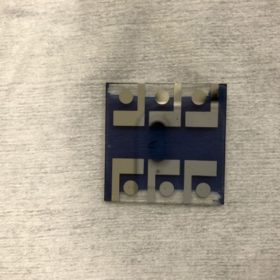Canadian fund Omers plans to acquire 49% of FRV Australia
Fotowatio Renewable Ventures’ (FRV) Australian platform includes 637 MW (DC) in projects already operational or under construction, and a pipeline comprising 7 GW of solar projects and 1.3 GWh of battery storage.
Novel battery chemistry for zinc-ion batteries
Scientists have demonstrated a zinc-ion battery that overcomes many of the challenges for this technology. By working with a highly-concentrated salt solution as the electrolyte, the group was able to achieve stability over more than 2,000 cycles combined with a strong electric performance. The group says that its work opens up “a viable route to developing aqueous batteries for emerging electrochemical energy storage applications.”
Dubai project promises ‘customised, walkable’ building PV
The new headquarters planned by DEWA is intended to consume no more annual electricity than it generates, from a large volume of rooftop and building-integrated PV.
The trillions spent by G20 nations on fossil fuels from 2015 to 2019 could have paid for more than 4 TW of solar
Polluting energy sources received more than $3 trillion from the EU and 19 of the world’s largest national economies over that four-year period, despite G20 members having pledged to phase-out fossil fuel subsidy and address climate change back in 2009.
Sunday read: Solar in Gaza, PV resilience under fire
The Gaza Strip, one of the most densely populated areas in the world, is embracing solar energy as a reliable local energy source. However, its 2 million residents still only have access to electricity for just a few hours per day. Amjad Khashmann reports on damages to installed PV systems and the urgent need for new installations to support education, water, and health care.
n-type perovskite tandem cell hits 27% efficiency
Scientists demonstrated a perovskite-silicon tandem cell that reached 27% conversion efficiency. Though higher tandem cell efficiencies have been achieved, this represents a big jump in efficiency for those utilising n-i-p architecture, which previously had not surpassed 22%.
Solar module cooling techniques for harsh climates
Saudi scientists have tested several cooling technologies for solar panels and have found that active techniques work better than passive ones under harsh climatic conditions. The most effective one consists of a system based on four heat pipes immersed in a box of liquid, as liquid bulk, integrated with the back of the solar panel.
‘Low-cost renewable hydrogen may already be in reach’
If the three record-busting low solar price tariffs recorded in the Middle East in the past 18 months are to be believed, renewables-powered hydrogen in prime sites in the region could already compete with gas-plus-CCS production, according to IRENA. Has the Gulf discovered the new petrol?
Organic solar cell with 18.4% efficiency via new electrode coating
Saudi scientists built the cell’s electrode with a hole-transporting molecule called Br-2PACz and not with the commonly used PEDOT:PSS. It helped improve the photovoltaic cell efficiency by around 0.9%.
Are oil and gas companies on the run?
Private sector fossil fuel spending on exploration is drying up just as modest rises in clean energy investments are being observed. With stock market investors increasingly embracing renewables, the IEA has observed positive signals in its latest energy investment report, but warned we are still doing far too little to keep global heating at bay.
